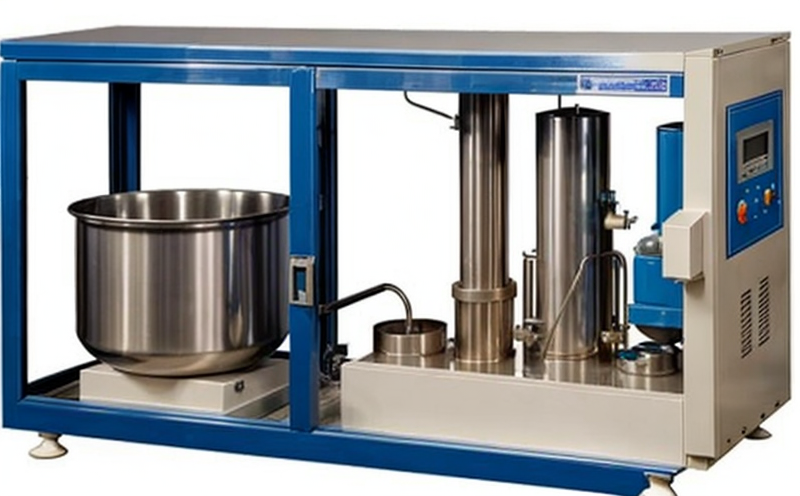EN 17026 DON Quantification in Wheat-Based Feed
The presence of deoxynivalenol (DON), a mycotoxin produced by Fusarium species, is a significant concern for the food and feed industry. DON can contaminate wheat-based feeds, posing risks to both animal health and human consumption through the food chain. This service focuses on the quantification of DON in wheat-based feed using EN 17026, an international standard that provides robust methodologies for accurate detection.
The standard is particularly relevant because it ensures that feed manufacturers adhere to safety standards set by regulatory authorities like the European Commission and the World Health Organization (WHO). By offering this quantification service, we help clients ensure compliance with these regulations and maintain product quality.
Our approach begins with thorough sample preparation. This involves grinding wheat samples into a fine powder for homogeneity before extracting DON using an appropriate solvent. The extracted DON is then analyzed via liquid chromatography coupled with tandem mass spectrometry (LC-MS/MS). This method offers high sensitivity and selectivity, making it ideal for detecting low levels of DON.
The service covers a range of specimen types including raw wheat grains, processed feed products, and finished feeds. Our laboratory adheres to strict acceptance criteria as outlined in EN 17026 to ensure accurate results. This includes ensuring that all reagents are of the highest quality and that equipment is calibrated regularly.
The process involves several key steps:
- Sample collection and preparation
- Extraction of DON using a solvent
- Analysis via LC-MS/MS for quantification
- Data interpretation and reporting
Our service is designed to meet the specific needs of stakeholders in the food and feed sector, including quality managers, compliance officers, R&D engineers, and procurement teams. By ensuring that DON levels are within acceptable limits, we contribute to safer products and protect against potential health risks.
To provide a comprehensive overview, here’s an outline of what our service entails:
- Comprehensive sample preparation
- Robust extraction methods
- Advanced analytical techniques
- Stringent quality control measures
- Compliance with international standards
- Prompt and accurate reporting
In summary, our EN 17026 DON quantification service in wheat-based feed is a critical tool for maintaining product safety and regulatory compliance. By leveraging this service, clients can ensure that their products meet the highest quality standards.
| Sample Type | Analytical Method | Regulatory Compliance |
|---|---|---|
| Raw Wheat Grains | LC-MS/MS | EN 17026, EU Regulation No. 492/2011 |
| Processed Feed Products | LC-MS/MS | EN 17026, WHO Guidelines |
| Finished Feeds | LC-MS/MS | EN 17026, FDA Standards |
This table highlights the sample types we analyze and the corresponding regulatory standards that govern our service.
Why It Matters
The quantification of DON in wheat-based feed is crucial for several reasons. Firstly, it ensures product safety by identifying potential health risks associated with mycotoxin exposure. Secondly, it supports compliance with international and national regulations aimed at protecting public health. Lastly, this service enhances the reputation and trustworthiness of food and feed manufacturers.
By providing accurate quantification, our laboratory helps mitigate the risks of DON-induced diseases in livestock, which can lead to reduced productivity and profitability for producers. In humans, exposure to high levels of DON has been linked to gastrointestinal issues, immune suppression, and neurological effects. Ensuring that wheat-based feeds are free from excessive DON concentrations is essential for maintaining consumer confidence.
The importance of this service extends beyond individual companies; it contributes to the broader goal of ensuring food safety across the entire supply chain. By adhering to international standards like EN 17026, we play a vital role in safeguarding public health and promoting sustainable agricultural practices.
Industry Applications
The quantification of DON in wheat-based feed is applicable across various sectors within the food and feed industry. Here are some key areas:
- Animal Feed Manufacturers: Ensuring that processed feeds meet safety standards to protect livestock health.
- Agronomists: Monitoring field conditions to prevent contamination before harvesting.
- Packaging and Transportation Companies: Verifying the integrity of feed products during transit and storage.
- Retailers: Providing assurance that shelf-ready products are safe for sale.
| Sample Type | Target Audience | Main Use Case |
|---|---|---|
| Raw Wheat Grains | Agronomists, Grain Buyers | Pre-harvest monitoring to prevent contamination. |
| Processed Feed Products | Animal Feed Manufacturers, Retailers | Quality control during production and distribution. |
| Finished Feeds | Retailers, Consumers | Ensuring product safety for final consumption. |
The table illustrates the diverse applications of our service across different stakeholders in the food and feed industry.
Competitive Advantage and Market Impact
Offering EN 17026 DON quantification in wheat-based feed provides several competitive advantages:
- Prompt Compliance: Ensures that clients meet regulatory requirements quickly and efficiently.
- Enhanced Reputation: Builds trust with customers by delivering high-quality, safe products.
- Cost Savings: By preventing contamination and recalls, this service helps avoid costly penalties and reputational damage.
- Innovation Support: Provides data to support ongoing research and development efforts in mycotoxin management.
The market impact of our service is significant. It contributes to the overall safety and quality of food products, thereby protecting public health and fostering consumer confidence. This, in turn, supports the growth and sustainability of the food and feed industry as a whole.
By offering this specialized quantification service, we position ourselves at the forefront of mycotoxin management solutions, helping clients stay ahead in their respective markets.





